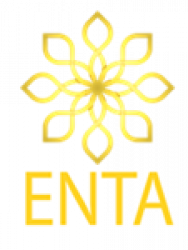Dec. 18, 2019 – American University in Cairo New Campus, (HUSS PO71)
8:45 – 9:00 Registration and opening notes.
9:00 – 9:30 Ruba Khamam – University of Leeds
Cracking the Code for Enhancing writing proficiency of Arabic Learners and Developing Teacher’s CPD Training & Guide on this Process.
Developing writing skills is a key objective in CEFR and Second Language Acquisition. This paper presents a range of pedagogically tested techniques on the development of writing quality of Arabic advanced learners in UK higher Education. It also elaborates on the effectiveness of providing explicit L1 instruction & practical training to Arabic L2 Learners in their final year of studying Arabic at University and their impact on students’ writing quality. Accordingly, the current study investigates the following research questions:
What are the effective strategies, innovative techniques and instructions Arabic Language tutors use to develop students’ writing skills?
What role does systematic instruction and strategy teaching play in enhancing writing proficiency of Arabic advanced learners?
The study design involves the researcher’s experimental approaches, observation and analysis of final year Arabic language students’ writing tasks over the course of two years. This is an ongoing research and the effect of teacher’s training and explicit L1 instruction is being tested in relation to the following three aspects of students’ linguistic, socio-linguistic and pragmatic proficiencies. Preliminary findings and observation suggest that pedagogic intervention help in improving learners’ writing skills. Finally, this paper aims to build a theoretical model/ guidelines for enhancing Arabic language learners’ writing skills.
9:30 – 10:00 Letizia Lombezzi – University of Siena
The Teacher’s Role in Selecting TAFL Authentic Materials
The importance of using authentic materials depends on their high relevance to daily life. In fact, authentic materials are “written by members of a language and culture group for members of the same language and culture group” (Galloway 1998: 133). The language there found perfectly fits concrete settings and is also naturally charged with cultural meanings. It is particularly true for Arabic, when authentic resources attest to the adoption of regional accents. This leads us to stress the importance of such resources for training specific key-skills like interaction and listening. The main challenge lays in choosing materials appropriate to learners‟ age and level of proficiency. Selecting authentic materials asks then for a strategy in both the choice and presentation to the class. If teachers recur to glossing or translating new words, all the efforts will result vain and contrary to the development of the interpretation ability, the one which needs to be elicited.
10:00 – 10:30 Hossam Ahmed – Leiden University
Towards Arabic Teacher Certification in Europe
Over the past two decades, the question of standards in second language learning and teaching have gained increasing interest in the field of Foreign Language Teaching. In this presentation, I give an overview of second language teacher training standards and guidelines, with special focus to the European context, such as the Common European Framework of Reference for Language Teachers (CEFRLT) currently under development, and the European Core Curriculum for Mainstreamed Second Language -Teacher Education. I will then discuss their relevance to the preparation of Arabic as a Foreign Language (AFL) post-secondary instructors. The presentation will then outline a needs assessment protocol for AFL teacher training as a call for collaboration across European universities.
10:30 – 11:00 Break
11:00 – 11:30 Rasha Soliman – University of Leeds
A Short Arabic Teacher Training Course: Challenges and Lessons Learnt
In this talk, I would like to share insights from an intensive short teacher training course that we offered at the University of Leeds in July 2019. The course was successful in terms of number of attendees and the received feedback. However, on reflections, there were a number of internal and external challenges that we faced and which can be faced by any international or Arab institution trying to offer teacher training. There were also insightful lessons learnt from the experience which are ought to be taken into consideration for future courses.
This presentation will briefly go through the steps taken in preparation of the course, its rationale and how certain challenges were tackled. From internal logistics to external expectations from Arabic teachers at different levels; these are all very important aspects that trainers have to bear in mind when taking the decision to offer a course. The insights shared in this presentation will be based on collected data through a pre-course survey as well as observations throughout the process of designing and delivering the course. Post-course feedback and observations will also be touched upon in this talk.
11:30 – 12:00 Tony Calderbank – Qatar Foundation International
Arabic teacher preparation and training in the UK
The presentation will give a brief introduction to the current status of Arabic as a modern foreign language in schools in the United Kingdom, looking at who is learning it, what their motivations are, what methodologies are used to teach it, and what materials and resources are available. I will then go on to talk about the teachers who are teaching Arabic in UK schools, their experience and qualifications and to what extent they match the needs of a contemporary British mainstream school teaching context. I will discuss the training needs of Arabic teachers that we have identified as a result of QFI’s Arabic Language and Culture Project and the professional development issues we have sought to address through the teacher training programmes we offer and future opportunities we are working to develop.
12:00– 12:30 Lunch
12:30 – 1:30 ENTA Business meeting (minutes available to ENTA members)
Participants from EU institutions and invited representatives from non-EU institutions will discuss the structure and bylaws of the Network, expanding its membership, and future meetings.

